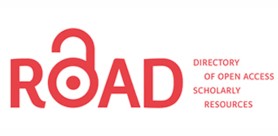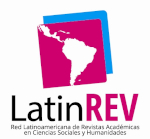WORD, ENCOUNTER, AND OTHERNESS: a bakhtinian perspective on the film Central Station and teacher training in LEEI
DOI:
https://doi.org/10.47180/omij.v6i1.336Abstract
This article analyzes the film Central Station (1998) in light of Bakhtinian concepts such as dialogism, polyphony, and otherness, focusing on its implications for teacher training within the National Program for Reading and Writing in Early Childhood Education (LEEI). The research follows a qualitative-interpretative approach, examining key scenes from the film—especially those involving letter writing and the evolving relationship between Dora and Josué—alongside autobiographical letters written by program participants. The analysis reveals how Dora’s ethical transformation demonstrates the power of responsive language in shaping subjectivity and pedagogical listening. The voices present in the film’s letters, diverse and socially marked, create a polyphonic discursive fabric that resonates with the teachers’ writings, reinforcing the word as a space of encounter, memory, and recognition. The discussion emphasizes the importance of active listening and responsivity in educational practices, aligned with the principles of Bakhtin’s Circle. The article concludes that both the film and the formative experience contribute to the construction of a dialogical and humanizing pedagogy, committed to the appreciation of otherness and the ethical-aesthetic function of language in building meaningful pedagogical relationships.
Downloads
References
BAKHTIN, M. Estética da criação verbal. Tradução de Paulo Bezerra. 4. ed. São Paulo: Martins Fontes, 2011.
BAKHTIN, M. Os gêneros do discurso. In: ______. Estética da criação verbal. Tradução de Paulo Bezerra. 4. ed. São Paulo: Martins Fontes, 2011.
BRAIT, B. (org.). Bakhtin – conceitos-chave. São Paulo: Contexto, 2005.
BRAIT, B. (org.). Bakhtin – outros conceitos-chave. São Paulo: Contexto, 2006.
BRASIL. Ministério da Educação. Secretaria de Educação Básica. Leitura e escrita na educação infantil: coleção. Brasília, DF: MEC/SEB, 2016. Disponível em: https://lepi.fae.ufmg.br/publicacoes/colecao/. Acesso em: 2 fev. 2025.
BRASIL. Ministério da Educação. MEC promove formação de professores da educação infantil. Brasília, DF: MEC, 26 mar. 2024. Disponível em: https://www.gov.br/mec/pt-br/assuntos/noticias/2024/marco/mec-promove-formacao-de-professores-da-educacao-infantil. Acesso em: 2 fev 2025.
CENTRAL DO BRASIL. Direção: Walter Salles. Produção: Arthur Cohn, Martine de Clermont-Tonnerre. Roteiro: João Emanuel Carneiro e Marcos Bernstein. Brasil/França: VideoFilmes, 1998. Disponível em: Netflix. Acesso em: 28 mar. 2025.
FREIRE, P. Pedagogia do oprimido. 17. ed. Rio de Janeiro: Paz e Terra, 1987.
SOUZA, F. M.; SOARES, M. B. Central do Brasil: Dora e as distorções da antipedagogia. In: SOUZA, F. M.; SOARES, M. B. (org.). Confluências entre cinema e ensino: reflexões mediadas por Mikhail Bakhtin, Darcy Ribeiro e Paulo Freire. São Paulo: Appris, 2020. p. 93–109.
Downloads
Published
How to Cite
Issue
Section
License
Copyright (c) 2025 Open Minds International Journal

This work is licensed under a Creative Commons Attribution-NonCommercial-NoDerivatives 4.0 International License.
The authors declare that any work submitted, if accepted, will not be published elsewhere, in English or in any other language, and even electronically, unless it expressly mentions that the work was originally published in the Journal.













